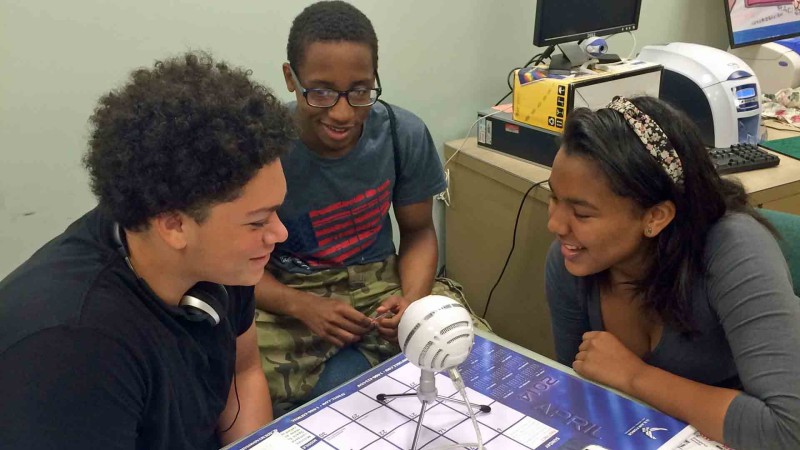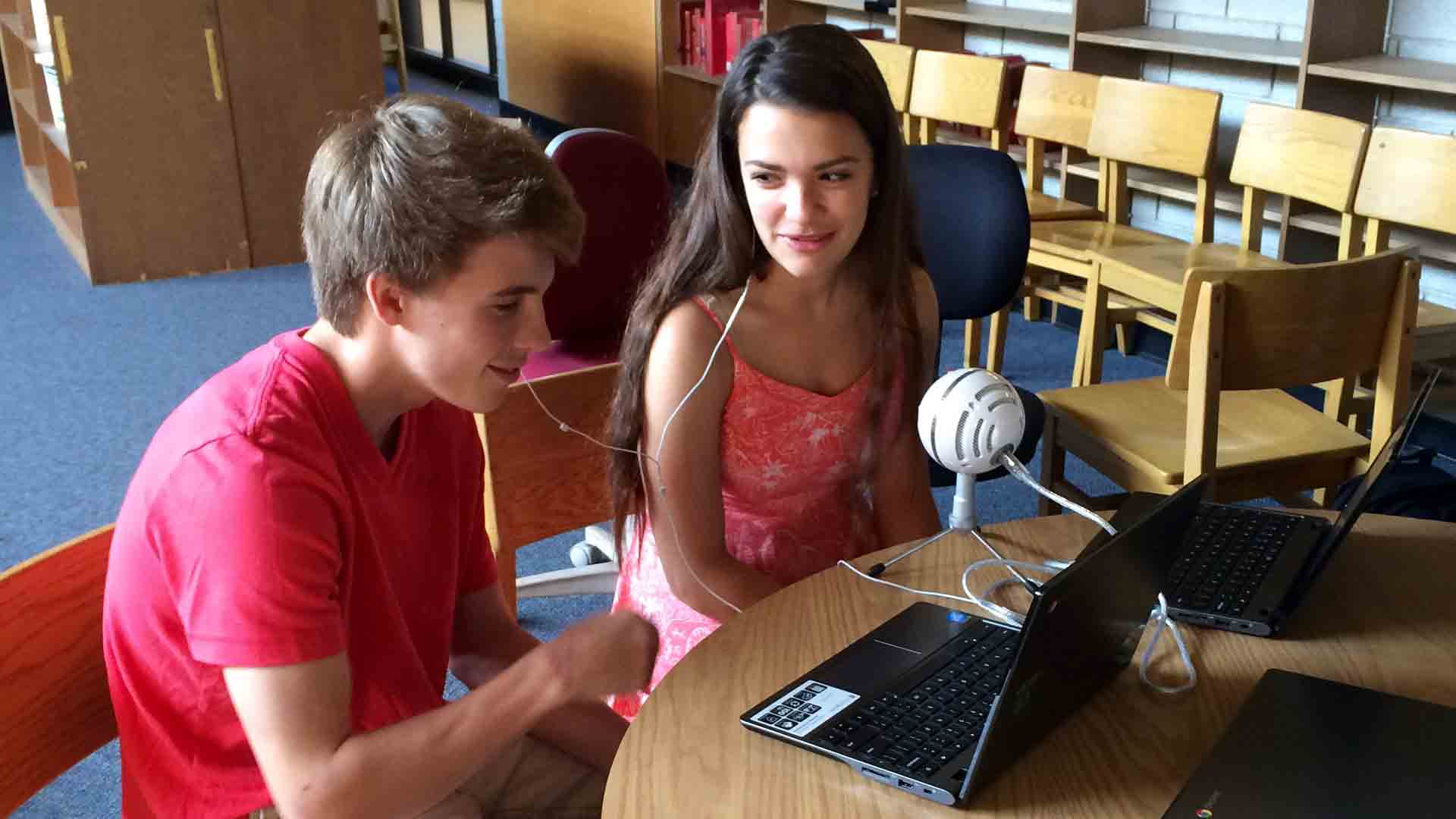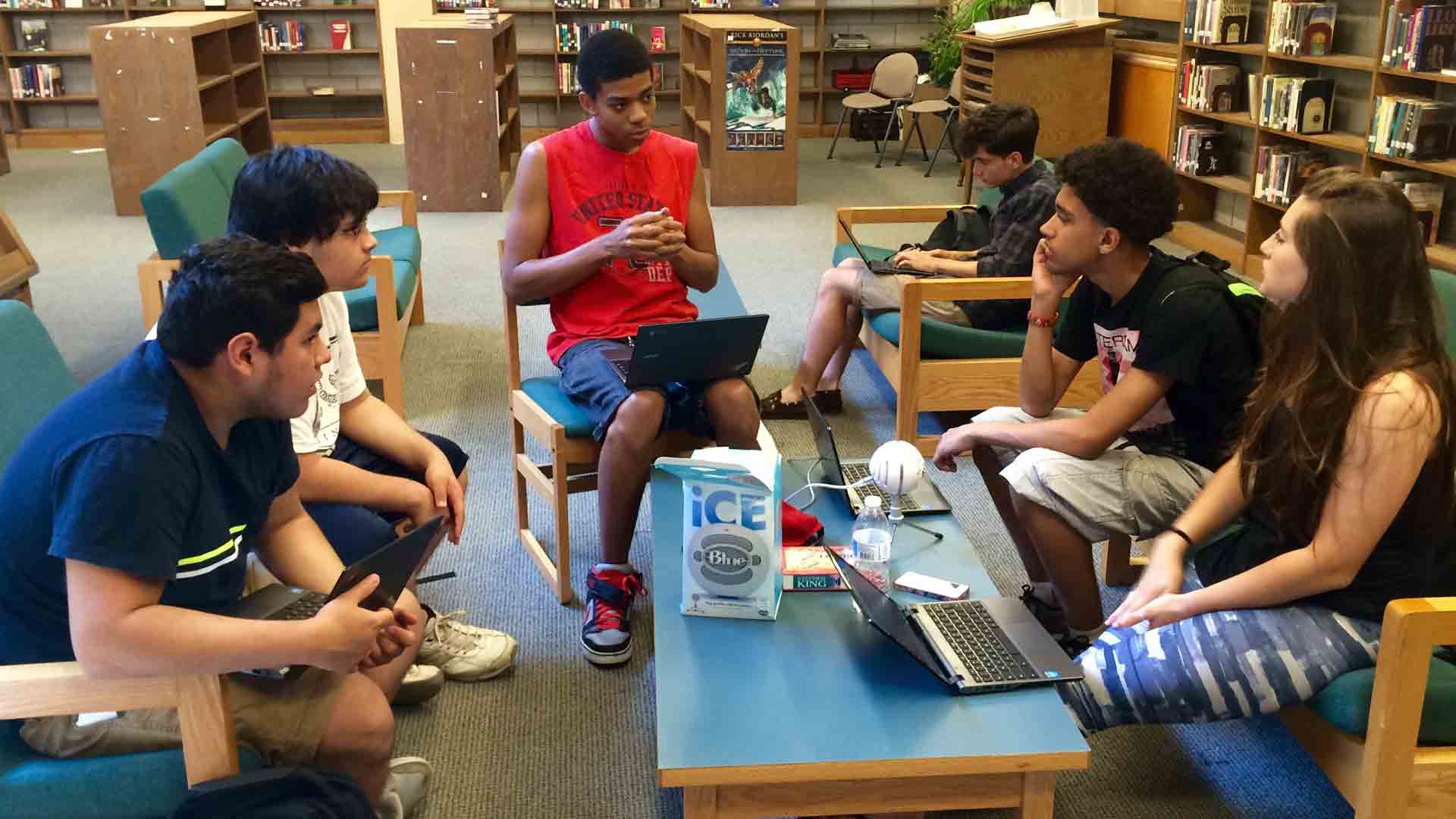In the months leading up to the final exam, 10th grade teacher Alexa Schlechter struggled. She’s an English teacher -- an educator of stories told through the written word. But instead of focusing solely on classic books read in the 10th grade, she and her students at Norwalk High School in Connecticut were immersed in a teenage story about murder, set in the 1990s, detailed in blog posts, communicated in audio: Serial, the hit podcast from the producers of This American Life.
After spending months listening to Serial and talking about it as a class, a two-hour sit-down final seemed pointless, irrelevant and an inaccurate gauge of all the learning that had taken place throughout the year. But learning as we know it in schools must be assessed. How else would adults know what kids have learned? So Alexa pursued an end-of-year assessment, possibly worthy of MailChimp (Mail Khimp?), in the form of a podcast.
While driving to school one day, thinking about Serial host Sarah Koenig’s frustrating evolution over the course of the series, Schlechter had what she calls an “aha moment.” Her students would draw on the skills they learned while listening to and studying Serial. They would work in groups (imagine Koenig, Dana Chivvis, Julie Snyder, the engineer who came up with their theme song, Ira Glass). Students would create a series of podcasts told from the point of view of a memoirist they’d read earlier in the year, such as Alice Sebold.
“’You’ve lost your mind,’” Schlechter recalls her students saying when she introduced the assignment. But by breaking the project into discrete steps, and emphasizing the particular skills the students needed to demonstrate, Schlechter made the assignment come alive in her classes.Each group would discuss a central idea from Harper Lee’s To Kill a Mockingbird, which the classes had recently analyzed, and ponder that theme as if they were the author of the previously-read memoir. Throughout, students were to integrate the priority standards from the Common Core into their work, including analysis, writing, collaboration and logical reasoning.




